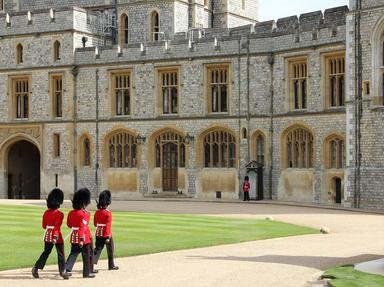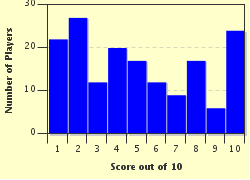Quiz Answer Key and Fun Facts
1. For how long did Macbeth reign?
2. What was Lady Macbeth's real name?
3. Duncan was an old king who had ruled for a long time.
4. How did Duncan die?
5. What was Macbeth's claim to the throne?
6. Macbeth's reign was marked by terror and hardship, as he tried to hold on to power.
7. Who was the first to challenge the supremacy of Macbeth's rule?
8. Who led an invasion of Scotland in 1054?
9. How did Macbeth die?
10. Who succeeded Macbeth as King of Scotland?
Source: Author
Plumbus
This quiz was reviewed by FunTrivia editor
bloomsby before going online.
Any errors found in FunTrivia content are routinely corrected through our feedback system.

